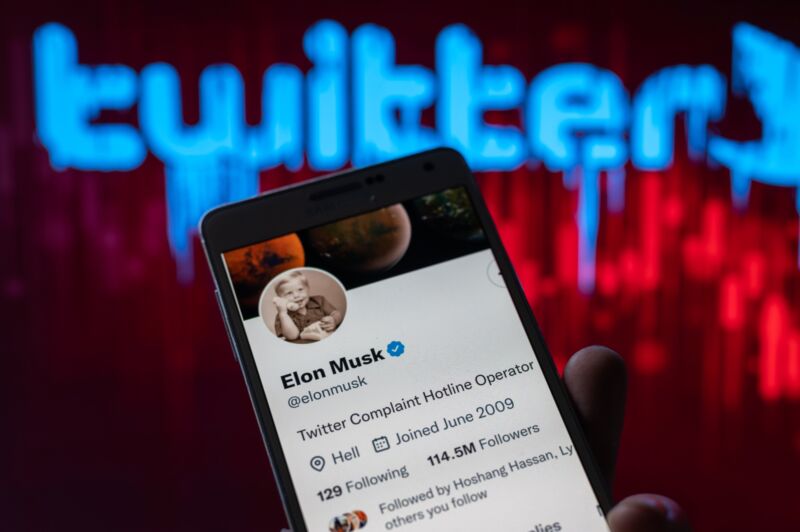
Elon Musk reportedly told Twitter staff in an email Wednesday that he is banning remote work and that any exceptions to the ban must be approved by Musk himself on a case-by-case basis. The new rules "will expect employees to be in the office for at least 40 hours per week, he added," Bloomberg reported.
The change takes effect today. "Obviously, if you are physically unable to travel to an office or have a critical personal obligation, then your absence is understandable," Musk wrote in yesterday's email, according to the Verge.
A report last week said Musk planned to give employees hired remotely during the pandemic "as little as 60 days" to relocate to an area close to a Twitter office. Musk also recently eliminated "days of rest" from Twitter's staff calendars, taking away a monthly day off.
In June, Musk held a virtual town hall with Twitter staff where he reportedly said he would let "exceptional" employees work at home. "If someone can only work remotely, and they're exceptional, it wouldn't make sense to fire them," he said at the time. A Twitter executive said during that June meeting that the company had about 1,500 full-time remote workers.
A class-action lawsuit against Twitter says that after the Musk purchase was announced in April, "Twitter promised that employees would be able to continue working remotely, for at least a year after Musk’s acquisition of the company." The lawsuit primarily challenges Musk's mass layoffs at the company, but says that ending remote work is also a breach of contract.
Musk: Economic outlook dire, Twitter is “doubly vulnerable”
Musk warned workers in yesterday's message that "the road ahead is arduous and will require intense work to succeed."
"Frankly, the economic picture ahead is dire, especially for a company like ours that is so dependent on advertising in a challenging economic climate," he wrote, according to The Verge. "Moreover, 70 percent of our advertising is brand, rather than specific performance, which makes us doubly vulnerable!"
The Musk-led Twitter raised the price of its Twitter Blue subscription from $5 to $8 a month and is giving subscribers the blue verification checkmarks that were previously only for notable accounts. The change is already enabling more fraud on the platform, but Musk told staff the subscriptions are crucial to Twitter's survival.
"Without significant subscription revenue, there is a good chance Twitter will not survive the upcoming economic downturn," he reportedly told workers in the Wednesday email. "We need roughly half of our revenue to be subscription." Musk's Twitter also has to pay off the $13 billion in debt he used to complete the $44 billion purchase. Twitter's interest expenses on its debt are set to balloon from $50 million to $1 billion per year, a recent New York Times report on Twitter's finances said.
Musk laid off about half of Twitter's workforce, cutting about 3,700 jobs on Friday last week. The layoffs were pushed through so quickly that dozens of employees were asked back; they reportedly included people who were laid off by mistake and others who were laid off before Twitter management realized they were still needed to build the features Musk wants.
Pre-Musk Twitter encouraged remote work
Musk's work-from-home directive is similar to orders he issued at Tesla and SpaceX earlier this year. Musk told employees at his electric car and space companies that they must be in the office at least 40 hours per week or leave the company.
Twitter's pre-Musk leadership encouraged employees to work wherever they felt comfortable doing so. CEO Parag Agrawal, who was fired by Musk right after the merger was completed, told employees in March that while all company offices were reopening, "the decisions about where you work, whether you feel safe traveling for business, and what events you attend, should be yours. As we open back up, our approach remains the same. Wherever you feel most productive and creative is where you will work, and that includes working from home full-time forever."
reader comments
398